📷 Museveni presses case for NRM record as western Uganda push starts
Addressing thousands of supporters at Saaza Grounds, the NRM national chairman and 2026 presidential flag bearer urged voters to reflect on the party’s nearly four decades of political stability, economic expansion and social transformation.
President Yoweri Kaguta Museveni arriving at Saaza grounds in Kisoro district on Monday, November 24. (Photos by Simon Peter Tumwine)
________________
President Yoweri Kaguta Museveni opened his western Uganda campaign trail in Kisoro with a call for Ugandans to rally behind the National Resistance Movement, framing the upcoming election as a choice to safeguard the progress made under his leadership.
Addressing thousands of supporters at Saaza Grounds, the NRM national chairman and 2026 presidential flag bearer urged voters to reflect on the party’s nearly four decades of political stability, economic expansion and social transformation.
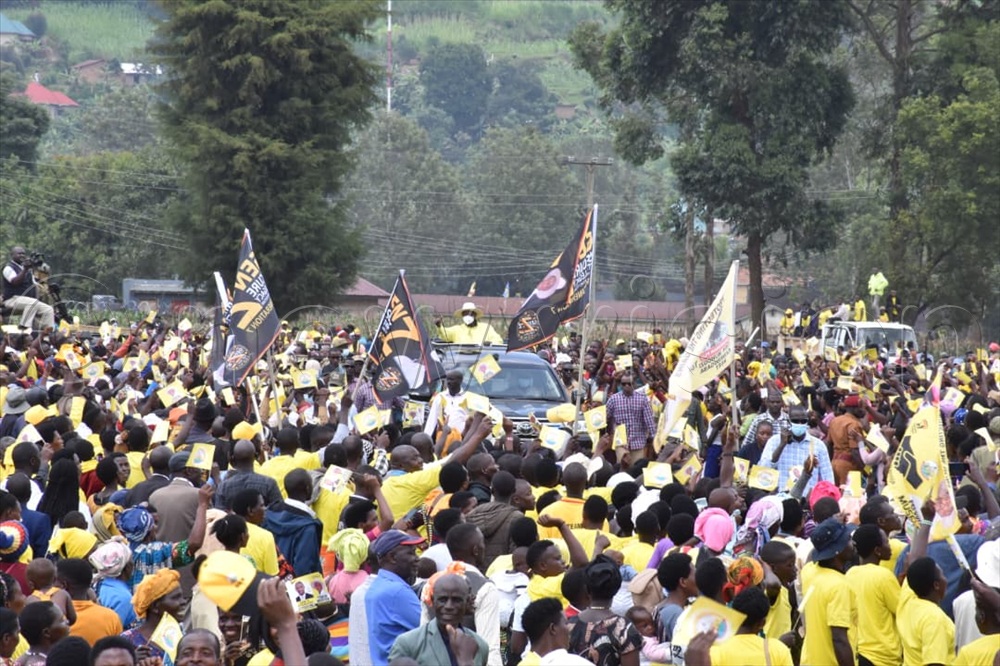
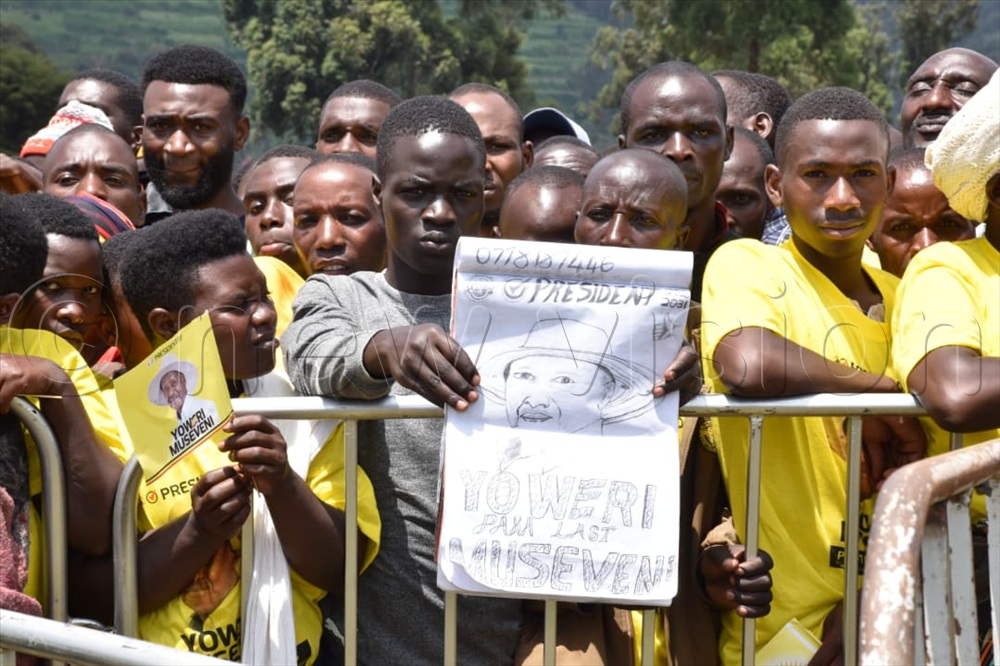
The crowd greeted him with loud chants as he began what he described as an effort to consolidate peace and development. He reminded residents that the NRM had steered Uganda from years of turbulence to a period of rising opportunity.
“The reasons we are here are to ask you to support the National Resistance Movement and to give you the reasons why,” he said, according to a release by the Presidential Press Unit.
Museveni contrasted the NRM’s record with opponents who, in his view, lack a basis for their appeals.
“People move around saying, ‘support me, support me,’ but ask them what they have done for the country. Uganda has had many problems — sugar shortages, cement, salt, clothes — but we have solved many of them. Most of the work has been done by the NRM,” he added.
His address centred on the campaign theme “Protecting the Gains as We Make a Qualitative Leap into a High Middle-income Status,” a vision he said required a disciplined and consistent approach.
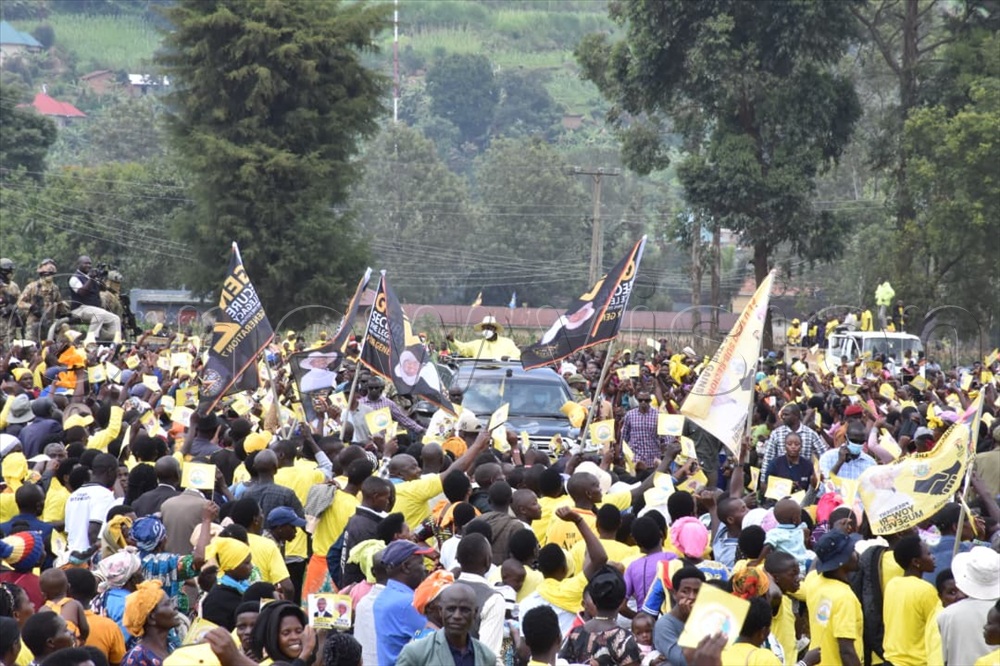
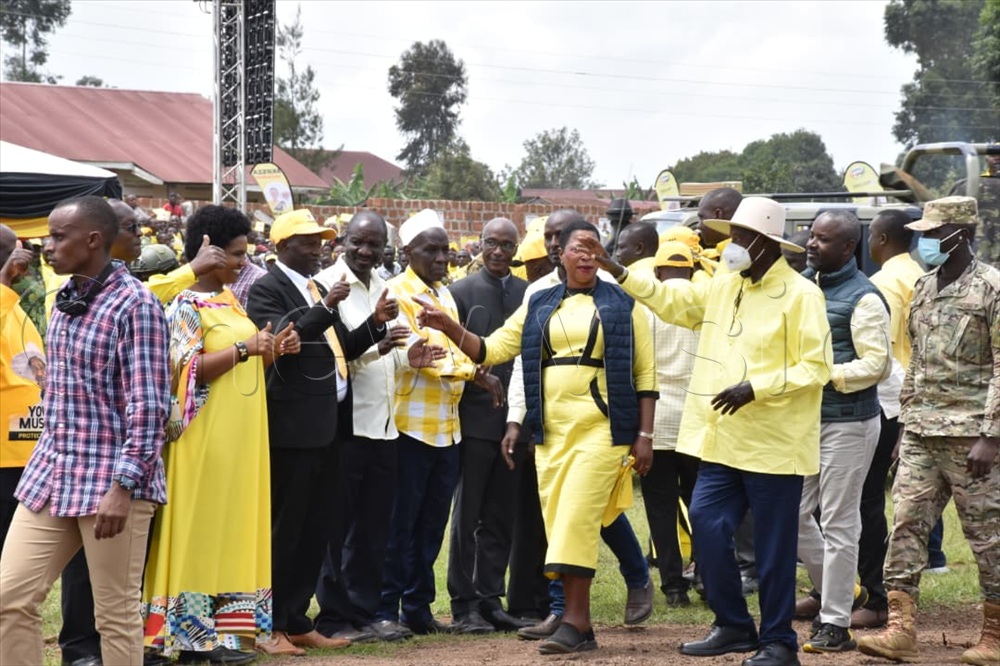
He said the next phase of development would depend on continuity and an intensified focus on household wealth creation.
Museveni outlined what he called the seven major contributions of the NRM, beginning with peace, a subject he said resonated strongly in Kisoro. He noted that the border region had once been hostile but had improved due to the cooperation between residents and the state.
“You, the people of Kisoro, know the importance of peace,” he told them.
The second contribution, he said, had been development, and he emphasised improvements in electricity, communication networks and road systems.
He cited completed works along the Kampala to Mbarara and Kisoro route and promised to finish several others. These included the Kabale to Kisoro to Mgahinga National Park road, which is still under construction, and the Kisoro to Muko to Rukiri to Katoojo road.
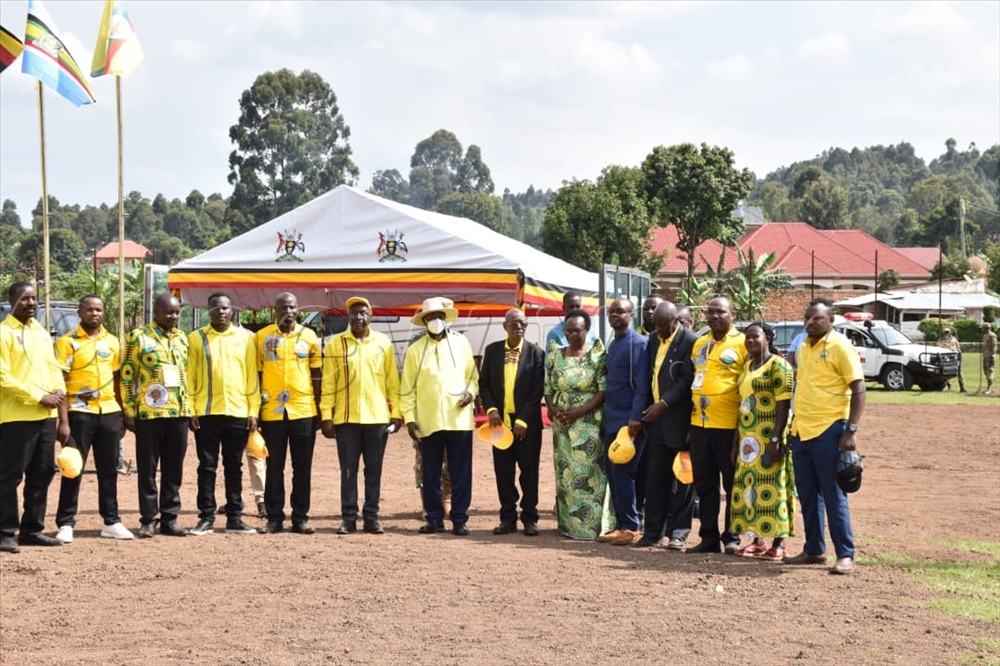
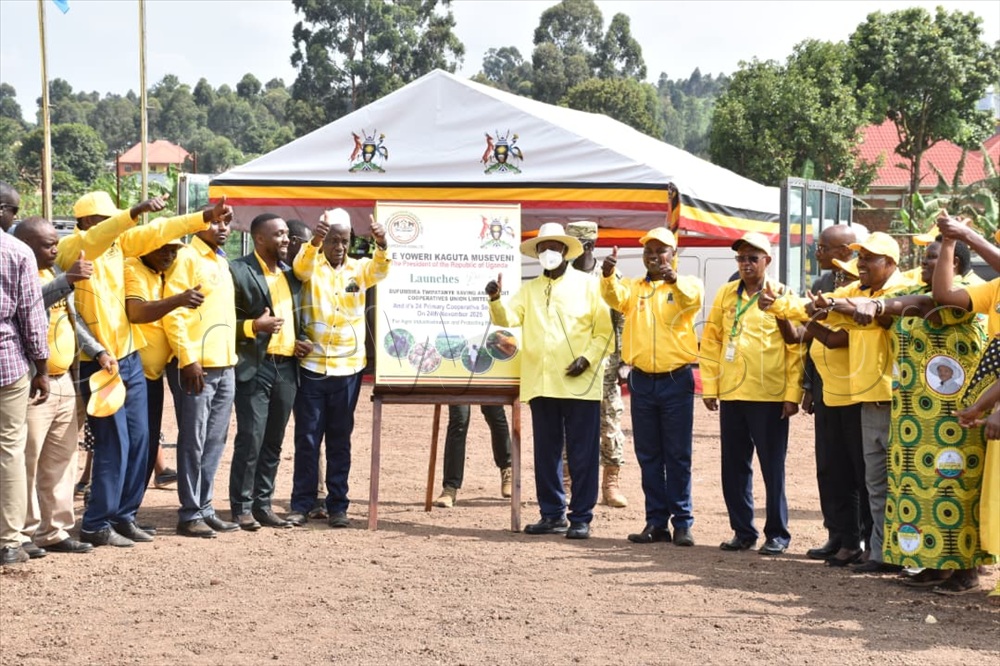
Education was another theme, with the President describing gains in the sector in Kisoro. He said the district now had 136 government primary schools and 14 government secondary schools implementing Universal Secondary Education and Universal Post-O-Level Education and Training.
But he raised concerns about the uneven distribution of schools across the 71 parishes, stating that 26 parishes did not have a government primary school despite some parishes having more than one.
“There are parishes with more than one government primary school, leaving 26 without. This is not good,” he said. “Government schools should be distributed fairly.”
He added that 10 out of 24 sub-counties still lacked government secondary schools.
Museveni then turned to wealth creation, telling supporters that infrastructure alone could not transform lives.
“We have tarmac roads up to Bunagana and Cyanika to Kabale, but people don’t sleep on the road,” he said.
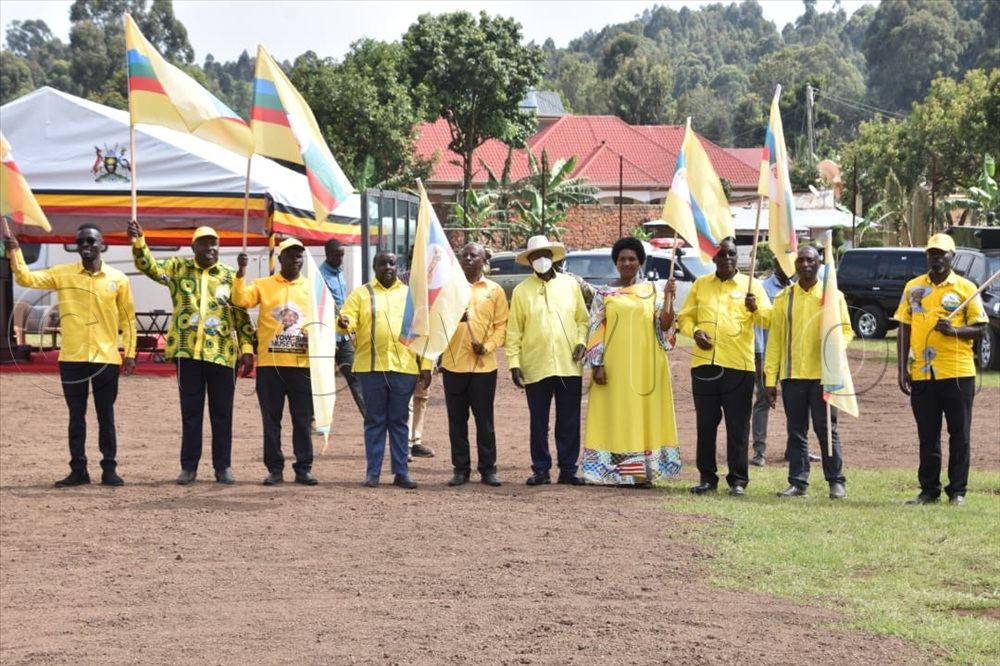
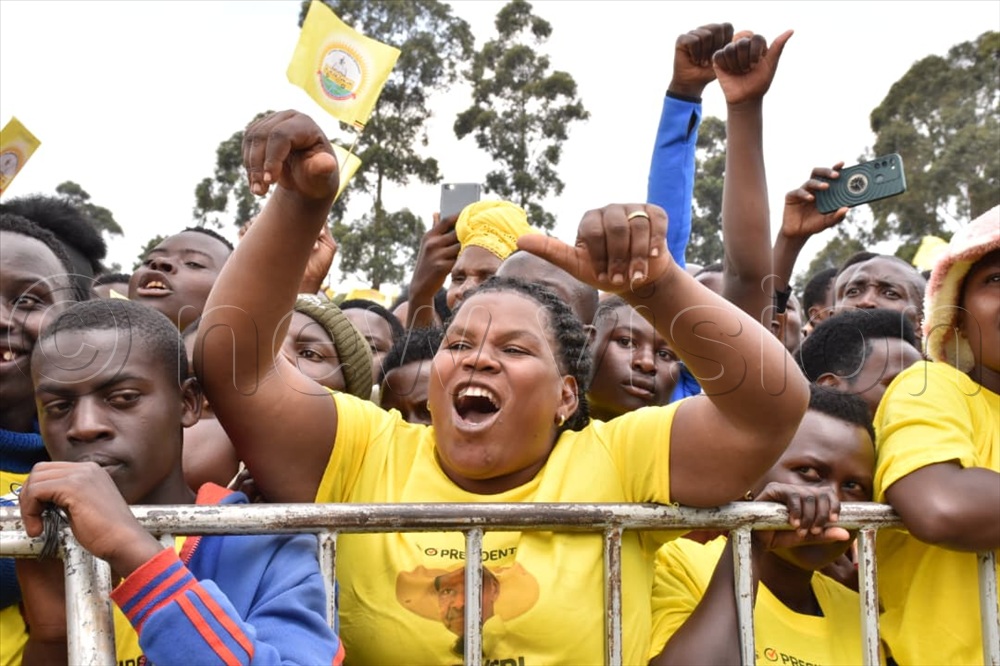
He encouraged households to adopt productive enterprises and used examples from rural areas to illustrate the potential of commercial agriculture.
He cited George Matongo of Ngoma, Nakaseke, who produces 900 litres of milk a day and earns around 21 million shillings monthly, despite living far from the nearest tarmac road.
“Development may still be lacking, but wealth is there,” he said. “That is why we tell you to create wealth, and the tarmac road will find you.”
He also revisited the 4-acre model, which he introduced in the 1996 manifesto, encouraging households to diversify into coffee, dairy, fruits, poultry, piggery and fish farming.
He highlighted the success of Joseph Basangwa, a poultry farmer from Kamuli who shifted to agriculture after losing a political contest in 2007.
Museveni recounted Basangwa’s growth into one of the country’s most successful poultry entrepreneurs.
“Basangwa is selling 110,000 eggs a day, earning sh20 million daily — that’s sh600 million a month and sh7.2 billion a year,” he said.
“He listened to our message. I advised him to join wealth creation, and now he employs 300 people.”
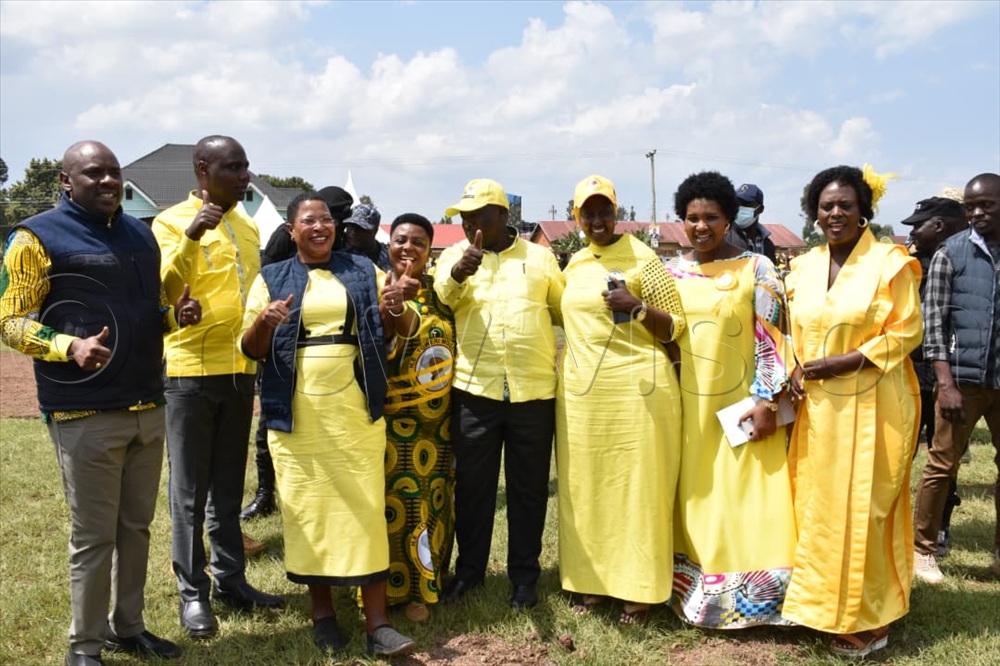
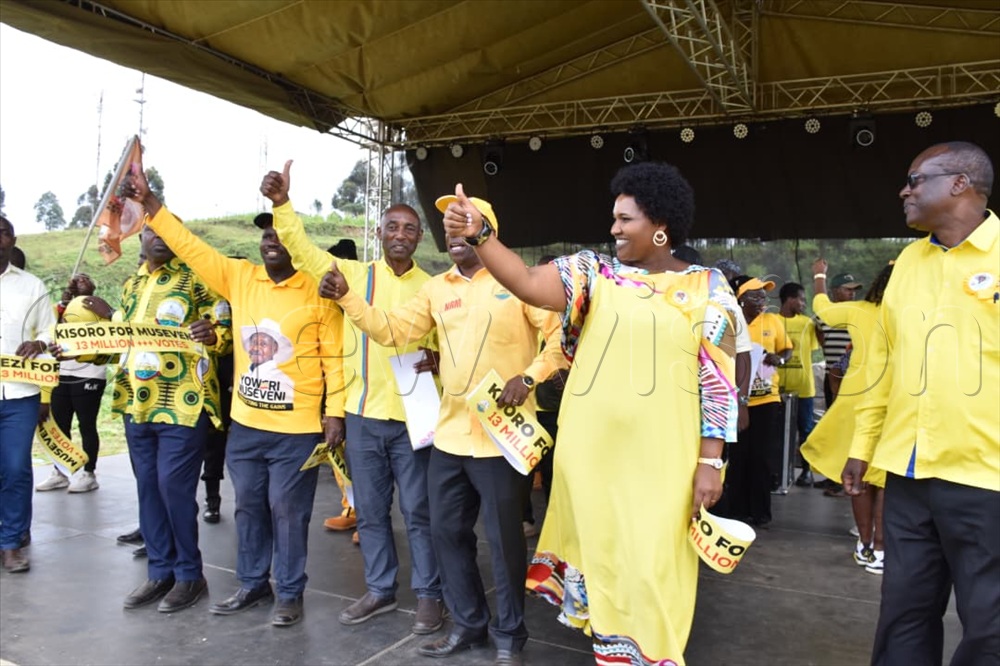
The President noted that employment opportunities come from four sectors: commercial agriculture, manufacturing and industry, services and ICT. He said factories now employ 1.3 million Ugandans, compared to 480,000 public servants, and praised industrial parks such as Sino-Mbale for supporting 75 factories.
Museveni also highlighted the contribution of vocational skilling, saying young Ugandans trained under the Presidential Skilling Hubs had started businesses in welding, carpentry, tailoring, bakery, hairdressing, leather design and construction.
He said the NRM had delivered progress but needed continued support to secure a prosperous future. “With your support, we shall consolidate the achievements and continue transforming Uganda,” he said.
The rally featured several senior NRM leaders. Speaker of Parliament and NRM second national vice chairperson, Annet Anita Among, thanked Museveni for transforming Uganda and predicted strong support from regions across the country.
“The people in the north and east have promised 90% of the votes. From Kisoro to Masindi, we expect you to vote 100%,” she said. She praised the road network in western Uganda, adding: “I have passed on this road from Kabale to Kisoro, and I must confess, it is a beautiful road.”
She urged voters to reward the NRM: “I wonder when people come here and say you have done nothing. The votes we are giving you this time are for appreciating what you have done.”
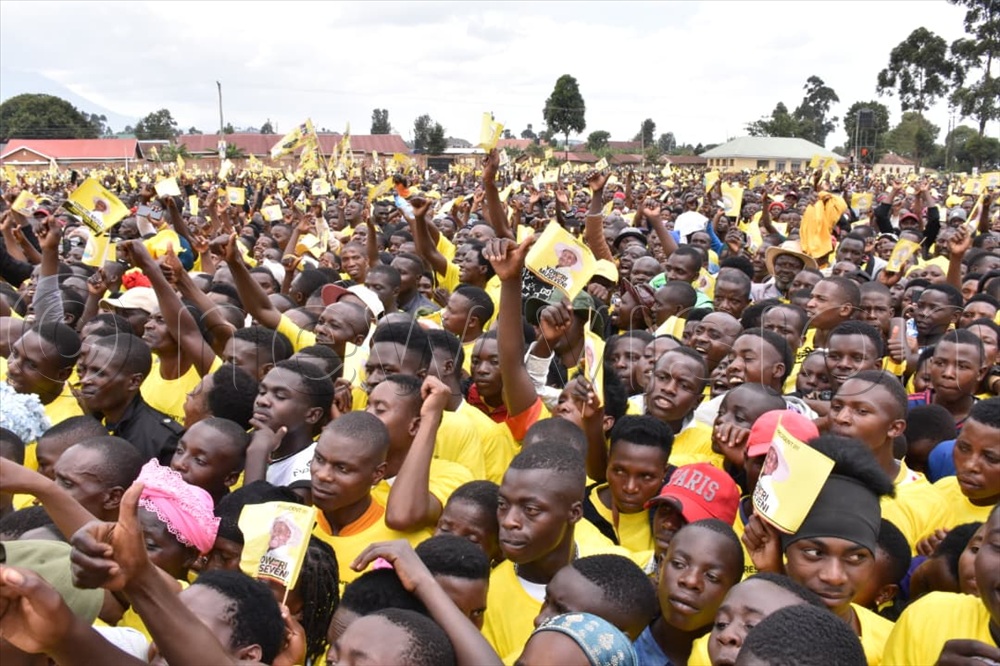
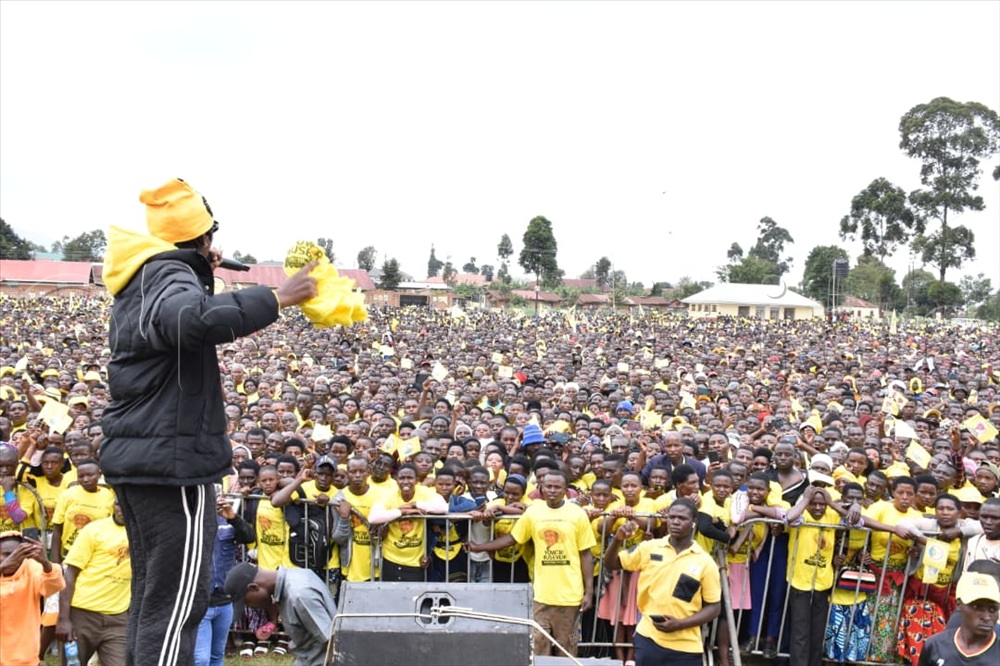
Deputy Speaker of Parliament, Thomas Tayebwa, said Museveni’s choice of Kisoro to launch the western campaign was “a sign of love” and encouraged unity.
NRM vice chairperson for western Uganda, Jonard Asiimwe, said the region remained a stronghold.
“The gains in western Uganda are many. We are going to support the party as children of NRM,” he said.
The crowd also included NRM secretary general Richard Todwong, other CEC members, Cabinet ministers, MPs and notable Kisoro figures such as Gen. Kale Kayihura and King Ceasor Mulenga.